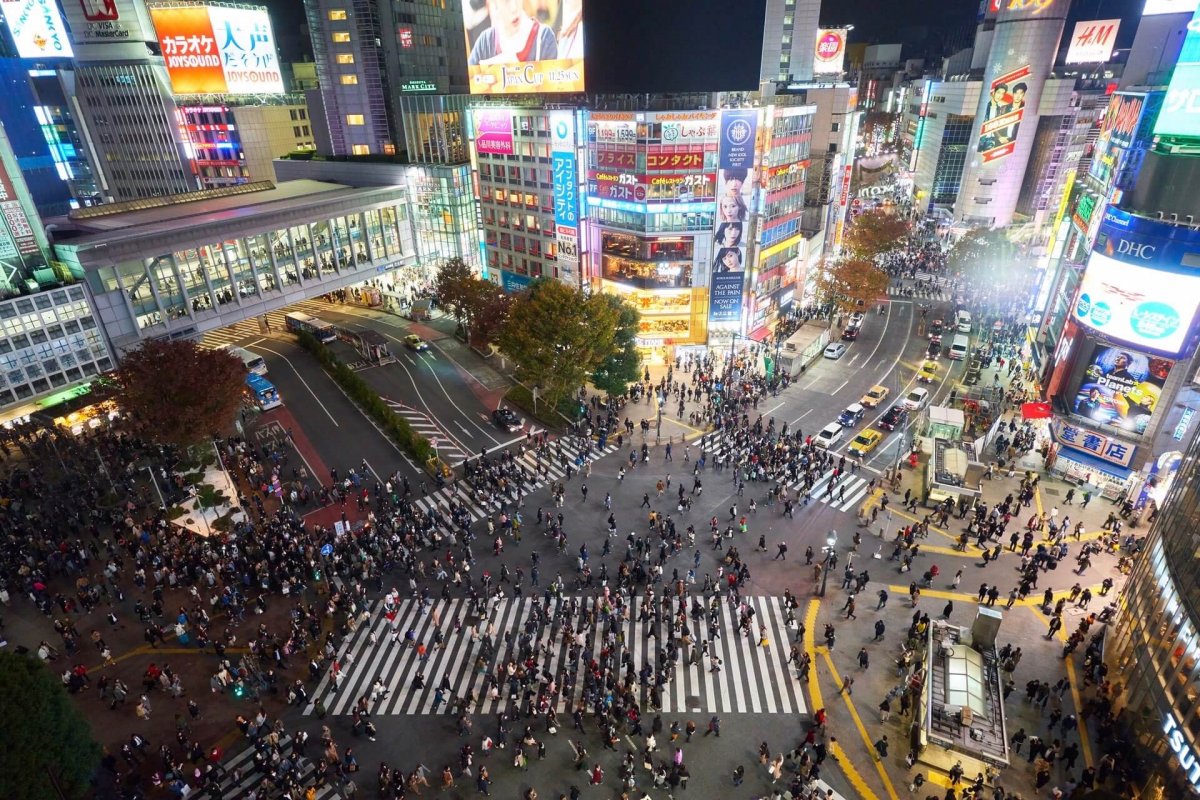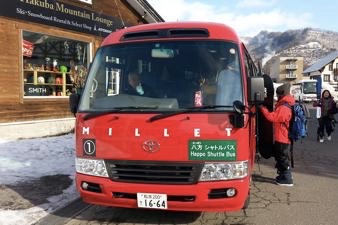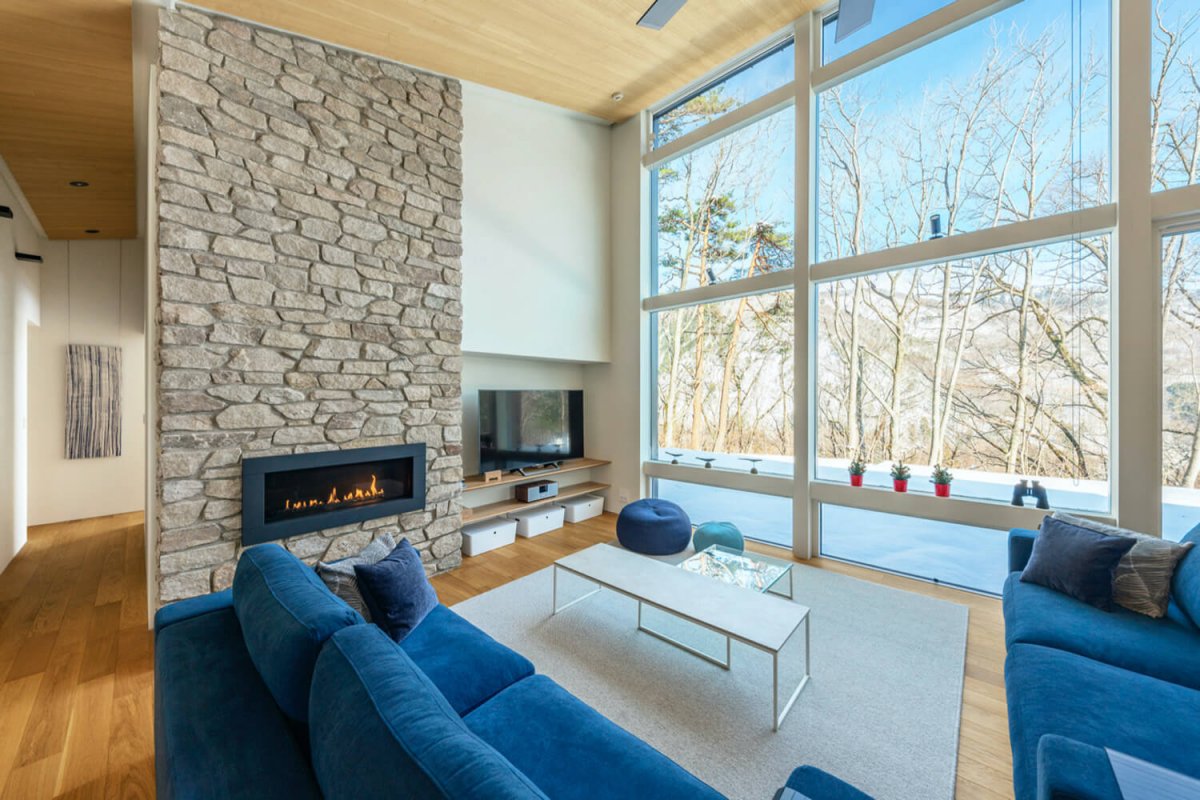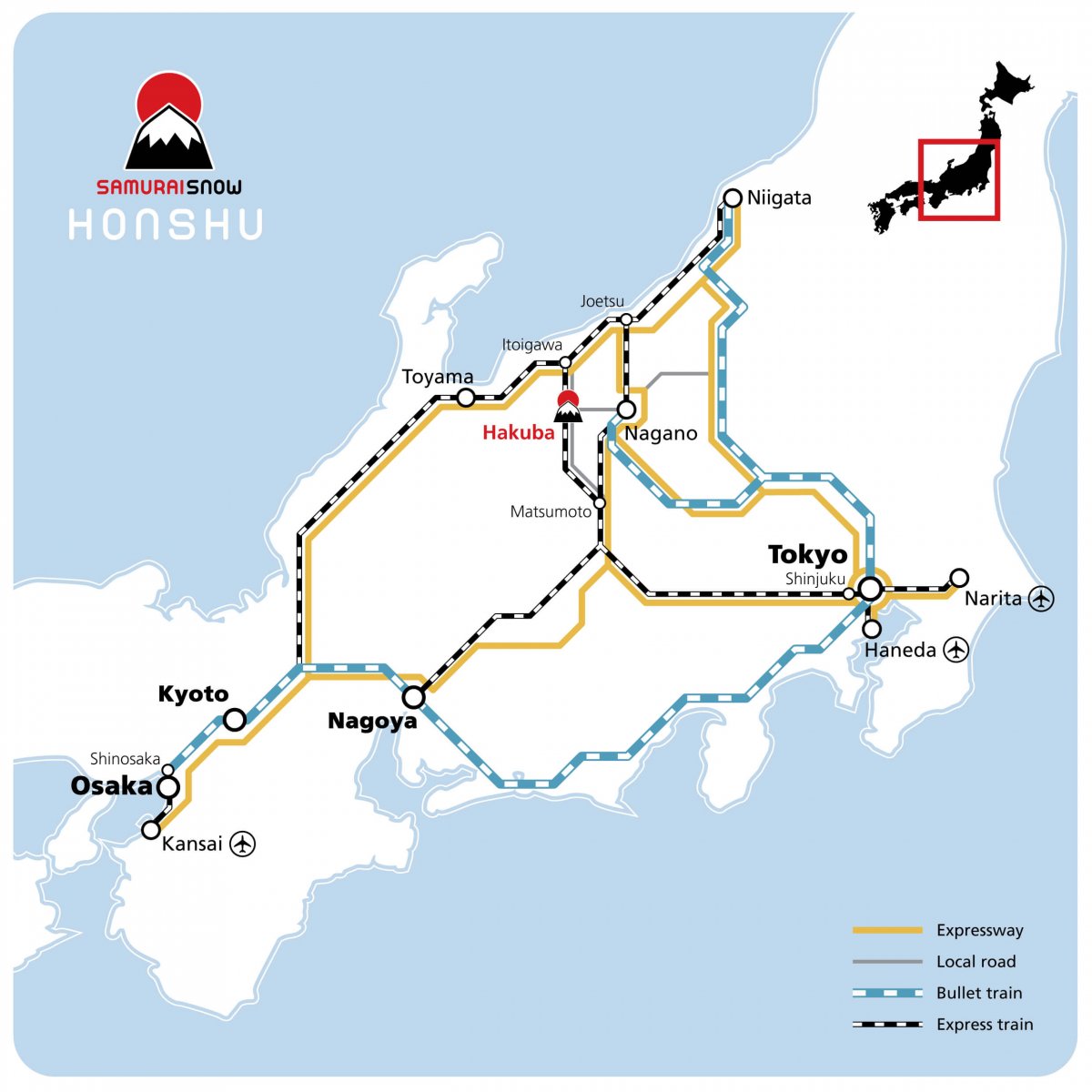
Overview
Tokyo is the primary gateway in and out of Japan. To the outsider, Tokyo's miriad sights and sounds are as compelling as they are exotic.
The contrast of its preserved past in the Imperial Palace & its gardens, the Asakusa district & Ueno park with its techno future in Akihabara (the electric city) and the neon lights of Shibuya and Shinjuku, make it one of life's glorious contradictions.
The scale and the pace of life can be a little disorientating at first but the buzz quickly gets under the skin. It's a city to return to again and again and experience something new every time.
The transfer time to Hakuba is between 2.5 and 5.5 hours depending on your choice of transfer.
Train, bus, taxi and self drive are both possible options for transport from Tokyo to Hakuba.
Getting Around Tokyo
Getting around Tokyo by rail is usually the quickest and best-priced option regardless of where you are staying in the city.
Taxis in Japan are usually significantly more expensive than taking the train.
The majority of Tokyo transit system is made up of 2x rail networks - the overground state-run Japan Rail (JR) system and the underground metro system.
Taking them together, these networks are one of the most extensive metropolitan rail networks in the world. There is nothing you would want to see in Tokyo that you can't get to by using the network.
In addition, there are a number of privately owned rail lines that have their own lines and stations. These can be useful to take for certain routes but are never the only transit option and are not covered by the JR Rail Pass.
Looking at the maps, the system can be pretty intimidating at first glance but the system is very well run and staff at stations are super helpful.
Tokyo JR Rail Map
Tokyo Metro Map


Tokyo to Hakuba - Bullet Train to Nagano & Taxi or Bus
- Price: ¥11,000 to ¥36,000 per person depending on the number of passengers and choice of transfer from Nagano to Hakuba
- Transfer Time: 2.5 to 3.5 hours depending on the choice of transfer from Nagano to Hakuba
Japan has a world-class network of trains that famously run on time to the second!
Tickets can be purchased on the day of travel from ticket machines or a sales counter.
Depending on where you are staying in Tokyo, head to Tokyo Station (central Tokyo) or Ueno Station (North Tokyo) to take the Hakutaka Shinkansen bullet train to Nagano.
Nagano is the gateway city for passengers heading to the ski resorts known as the 'Japan Alps'.
Bus, private taxi transfer, train and self-drive are all possible options for transport from Nagano to Hakuba.
Japan Rail Pass: For guests visiting Hakuba as part of a longer itinerary of travel elsewhere in Japan, either side of their ski experience, a Japan Rail Pass can be a fantastic investment, allowing unlimited train travel on most Japan Rail trains, for periods of 7, 14 or 21 days to suit your travel schedule.
- Look up winter season train timetables on JR East OR Search Japan's train schedules using the Japan Transit Planner.
Pros
- Fastest transfer option
- Free Shinkansen if you hold a JR Rail Pass
Cons
- One change required
- Not ideal for passengers with ski / snowboard bags
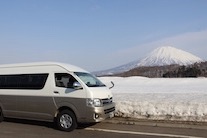
Tokyo to Hakuba Taxi
- Price: ¥14,000 to ¥140,000 per person - depending on vehicle type and number of passengers
- Transfer Time: 4 to 5.5 hours - depending on driving conditions and where you are staying in Tokyo
Private Taxi Transfers are the most convenient and fastest option for transfer from Tokyo to Hakuba with a choice of 8-person or 13-person vehicle sizes offered.
For transfers from Tokyo to Hakuba, the driver will meet you in your hotel lobby, carry your bags to the vehicle and drop you off at your check in location in Hakuba.
For transfers from Hakuba to Tokyo, the driver will collect you from your accommodation and drop you off at your Tokyo hotel. This means no lugging ski bags around the city!
Private jumbo taxi vehicle transfers must be booked in advance.
Tip
- You can book a stop off at a supermarket to buy groceries for an additional charge. If you are staying in self-catering accommodation in Hakuba and plan to cook some of your own meals, this can be really useful
Pros
- Available 24 hours a day
- Most convenient
- Faster than bus services
Cons
- More expensive than other options
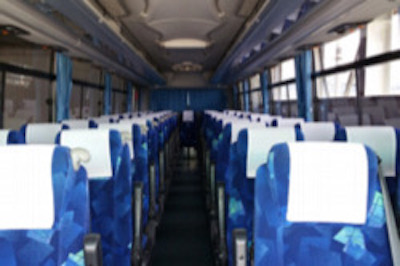
Tokyo to Hakuba Bus
- Price: ¥5,000 to ¥6,000 per Adult / ¥2,600 to ¥3,100 per Child
- Transfer Time: 5 to 5.5 hours
Taking the bus from Tokyo to Hakuba is a popular method of travel.
Highway Bus and Alpico Bus companies both offer multiple direct bus departures daily in the winter season from Shinjuku Expressway Bus Terminal in West Tokyo to Happo One Bus Terminal in Hakuba.
Reservation in advance for seats on these services is required.
If you let your accommodation provider know which bus you have booked, most will meet you at your drop-off location and take you to your accommodation for check-in.
Similarly for the bus from Hakuba to Tokyo, if you let your accommodation provider know which bus you have booked with sufficient notice, most will pick you up from your accommodation and drop you off at the bus pick-up location in plenty of time.
Tip
- An overnight departure is available, which is useful if you want to save money on a night's accommodation in Tokyo
Pros
- Well priced
- Direct - no change of vehicle required
Cons
- Slower than Train to Nagano & road transfer option
- Not a door-to-door service

Tokyo Shinjuku to Hakuba Train - Azusa No.5
- Price: ¥8,000 per person
- Transfer Time: 3.5 hours
Once per day at the same time each day, there is a direct train from Tokyo to Hakuba called the Azusa No.5 Limited Express Train.
Head to Shinjuku Station (West Tokyo) to catch the train. The destination (last stop on the route) is Minami-Otari Station.
Tickets can be purchased on the day of travel from ticket machines or a sales counter.
- Azusa No.5 Limited Express Train
- Depart Shinjuku Station: 08:00
- Arrive Hakuba Station: 11:42
For departures from Hakuba to Tokyo, take the Azusa No. 46 Limited Express Train:
- Depart Hakuba Station: 15:16
- Arrive Shinjuku Station: 19:08
What is the closest Train Station in Hakuba?
The closest station to your accommodation depends on where you are staying in the Hakuba Valley:
- Kamishiro Station for Goryu village
- Hakuba Station for Echoland area, Happo One village or Wadano village
- Shinano-Moriue Station for Iwatake village
- Hakuba Oike Station for Tsugaike village
- Chikuni Station for Norikura
- Minami Otari Station for Cortina
Hakuba Transport Map
If you plan which train you plan to get in advance, most accommodations in Hakuba will provide a pick up and drop service to / from your accommodation, if you book it with them in advance with a couple of weeks’ notice.
Alternatively, you can take a local taxi from Hakuba Station. Please ensure you have your destination written out in Japanese as most taxi drivers in Japan do not speak conversational level English.
Japan Rail Pass: For guests visiting Hakuba as part of a longer itinerary of travel elsewhere in Japan, either side of their ski experience, a Japan Rail Pass can be a fantastic investment, allowing unlimited train travel on most Japan Rail trains, for periods of 7, 14 or 21 days to suit your travel schedule.
- Look up winter season train timetables on JR East and JR Hokkaido OR Search Japan's train schedules using the Japan Transit Planner.
Pros
- Free if you hold a JR Rail Pass
- Direct service - no change of train required
Cons
- The early morning departure time is not for everyone
- Not ideal for passengers with ski / snowboard bags

Tokyo to Hakuba Train (not Azusa train)
- Price: ¥8,000 to ¥12,300 per person
- Transfer Time: Approx 5 to 5.5 hours (including waiting time between trains)
When coming from Tokyo and wanting to stick to trains only, the fastest routes are not via Nagano.
Depending on where you are staying in Tokyo, head to Tokyo Station (central Tokyo) or Shinjuku Station (West Tokyo).
Taking a combination of the Shinkansen (bullet train) and regular trains is the fastest option but is a little more expensive than just taking the regular trains.
Tickets can be purchased on the day of travel from ticket machines or a sales counter.
Option 1 - Shinkansen & Trains - ¥12,300
- Stage 1: Shinkansen Hakataka Line: Tokyo Station -> Itoigawa Station (2 hours)
- Stage 2: JR Oita Line: Itoigawa Station -> Minami-Otari Station (60 minutes)
- Stage 3: JR Oita Line: Minami-Otari Station -> Hakuba Station (20 minutes)
Option 2 - Trains only (no Shinkansen) - ¥8,000
- Stage 1: JR Chuo Line Rapid Services: Tokyo Station -> Shinjuku Station (14 minutes)
- Stage 2: Ltd Express Azusa Line: Shinjuku Station -> Matsumoto Station (2hr45)
- Stage 3: JR Oita Line: Matsumoto Station -> Shinano-Omachi Station (50 minutes)
- Stage 4: JR Oita Line: Shinano-Omachi Station -> Hakuba Station (40 minutes)
What is the closest Train Station in Hakuba?
The closest station to your accommodation depends on where you are staying in the Hakuba Valley:
- Kamishiro Station for Goryu village
- Hakuba Station for Echoland area, Happo One village or Wadano village
- Shinano-Moriue Station for Iwatake village
- Hakuba Oike Station for Tsugaike village
- Chikuni Station for Norikura
- Minami Otari Station for Cortina
Hakuba Transport Map
If you plan which train you plan to get in advance, most accommodations in Hakuba will provide a pick up and drop service to / from your accommodation, if you book it with them in advance with a couple of weeks’ notice.
Alternatively, you can take a local taxi from Hakuba Station. Please ensure you have your destination written out in Japanese as most taxi drivers in Japan do not speak conversational level English.
Japan Rail Pass: For guests visiting Hakuba as part of a longer itinerary of travel elsewhere in Japan, either side of their ski experience, a Japan Rail Pass can be a fantastic investment, allowing unlimited train travel on most Japan Rail trains, for periods of 7, 14 or 21 days to suit your travel schedule.
- Look up winter season train timetables on JR East and JR Hokkaido OR Search Japan's train schedules using the Japan Transit Planner.
Pros
- Free if you hold a JR Rail Pass
Cons
- A little complex if not familiar with trains in Japan
- Not ideal for passengers with ski / snowboard bags
- Longer total transfer time than going via Nagano

Driving from Tokyo to Hakuba
- Price: Varies by vehicle type and hire duration
- Transfer Time: 4 to 5.5 hours - depending on driving conditions and where you are staying in Tokyo
Tokyo has lots of car hire options for those wanting to drive themselves from Tokyo to Hakuba.
The route is pretty straightforward with road signs in English and an excellent road network.
Driving in January and February in the Nagano region can be a little tricky for those without experience of driving in challenging winter conditions. Snow & ice covered roads are possible and visibility can be poor when snow is falling.
If you are comfortable driving in these conditions, having a vehicle opens up the possibility of exploring all of the ski resorts that the Hakuba Valley has to offer or venturing to off-the-beaten-path Onsen hot springs in the area.
If you like the sound of this but prefer not to drive on your arrival and departure days, you can hire a car in Hakuba. This is becoming increasingly popular, so book as early as you can.
Larger 7 or 8-seater vehicles, such as Toyota Hi-Ace or Mistubishi Delica, are available to book in advance and can easily transport ski and snowboard bags.
Hire vehicles are four-wheel drive, come with winter tyres fitted (so no snow chains required) and English language GPS can be booked.
All drivers must bring their own national driver's license and a valid International Drivers Permit to legally drive in Japan. Car hire companies will not hand over the keys without these documents.
Pros
- Flexibility to ski wherever you like in the Hakuba Valley and visit Hakuba's different villages
Cons
- Can be challenging driving conditions in the Nagano region – snowy / icy roads & poor visibility are possible
You might also like
Hakuba Transfers
Whether you are coming from Tokyo or one of the other Ski Resorts in the Nagano area, there are numerous options for the transfer to Hakuba.
Book now through our Pre-Trip Concierge Service
Available for guests that have booked accommodation with us.
Getting Around Hakuba
Whether you prefer to jump on a shuttle bus, book a taxi or hire a car and drive yourself, there are plenty of options to get around the Hakuba Valley.
Hakuba Accommodation
The Hakuba Valley is spread out and offers a wide range of accommodation options from luxury 5-star hotels, self contained apartments and houses to pensions, lodges and cabins.
All information is correct to the best of our knowledge at the time of writing

